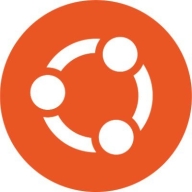

Ubuntu Linux and openSUSE Leap are two prominent players in the open-source operating system category. Based on features and deployment options, Ubuntu Linux seems to have the upper hand due to its extensive community support and versatility in deployment.
Features: Ubuntu Linux is known for its long-term support and easy system upgrades. It provides excellent hardware support and an extensive range of community repositories. Meanwhile, openSUSE Leap is recognized for its BTRFS file system, which is ideal for creating reliable system snapshots. It also offers more traditional system management tools, which can be appealing for precise system management.
Room for Improvement: Ubuntu Linux could enhance its compatibility with Windows software and refine its system management tools for greater intuitiveness. On the other hand, openSUSE Leap would benefit from improvements in its graphical user interface and documentation, both of which are necessary for a more seamless user experience and better third-party integrations.
Ease of Deployment and Customer Service: Ubuntu Linux offers versatile deployment options across various environments such as private, public, hybrid clouds, and on-premises. This is facilitated by its strong community support, which provides a wealth of expertise. openSUSE Leap is more focused on on-premises deployment, making it appealing to those prioritizing operational consistency. Both systems mainly rely on community support with limited direct customer service options.
Pricing and ROI: Both Ubuntu Linux and openSUSE Leap are open-source and free to use, leading to significant cost savings compared to proprietary alternatives. Ubuntu Linux offers robust community support and optional paid enterprise services, making it attractive for businesses seeking cost-effective solutions with professional support options. Conversely, openSUSE Leap provides free access and is particularly suitable for extending the life of older hardware, thereby reducing hardware costs and offering a high return on investment.
| Product | Market Share (%) |
|---|---|
| Ubuntu Linux | 11.5% |
| openSUSE Leap | 6.1% |
| Other | 82.4% |

| Company Size | Count |
|---|---|
| Small Business | 2 |
| Midsize Enterprise | 1 |
| Large Enterprise | 4 |
| Company Size | Count |
|---|---|
| Small Business | 84 |
| Midsize Enterprise | 21 |
| Large Enterprise | 52 |
openSUSE Leap is a brand new way of building openSUSE and is new type of hybrid Linux distribution. Leap uses source from SUSE Linux Enterprise (SLE), which gives Leap a level of stability unmatched by other Linux distributions, and combines that with community developments to give users, developers and sysadmins the best stable Linux experience available. Contributor and enterprise efforts for Leap bridge a gap between matured packages and newer packages found in openSUSE’s other distribution Tumbleweed.
Ubuntu Linux is an open-source platform known for its robust security, ease of use, and rapid performance. Its lightweight design and comprehensive support system make it ideal for diverse IT environments, providing seamless management and scalability options.
Ubuntu Linux stands out with its open-source nature that allows extensive customization and access to a broad range of free software. It is widely praised for its stability and a vast package repository offering regular updates, enhancing its usefulness across different sectors. The platform is equipped with a lightweight design and excellent community support, making it scalable and easy to manage. While it could improve in areas like Windows software compatibility and user interface refinement, its benefits in enterprise management and development projects are undeniable. Improved documentation, better hardware integration, and enhanced third-party application compatibility are additional focal points to consider.
What are the key features of Ubuntu Linux?
What benefits should be considered from reviews?
Ubuntu Linux is prominently implemented in industries for tasks such as server management, application deployment, and software development. Its resource efficiency and open-source tool compatibility make it a favorite for programming, research, and cybersecurity. Companies frequently use it for web hosting, cloud services, and managing multi-user enterprise solutions.
We monitor all Operating Systems (OS) for Business reviews to prevent fraudulent reviews and keep review quality high. We do not post reviews by company employees or direct competitors. We validate each review for authenticity via cross-reference with LinkedIn, and personal follow-up with the reviewer when necessary.